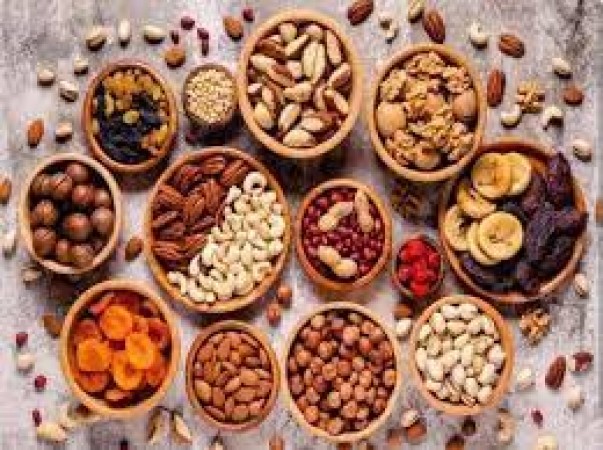In today's health-conscious world, people are constantly seeking ways to maximize the nutritional benefits of their food. One such practice gaining popularity is soaking dry fruits. So, which dry fruits should be eaten after soaking to reap the maximum benefits? Let's dive into the world of soaked dry fruits and discover the key players in this nutritious game.
Soaking Dry Fruits: A Traditional Practice with Modern Relevance
Soaking dry fruits is a time-honored tradition in many cultures, known for its various health benefits. This simple act can enhance the digestibility and nutrient absorption of dry fruits, making them even more valuable to our diet.
Understanding the Science Behind Soaking
Soaking dry fruits triggers several beneficial processes:
1. Hydration of Nutrients
When dry fruits absorb water during soaking, they become plump and tender. This process unlocks their nutrient content, making it easier for our bodies to absorb essential vitamins and minerals.
2. Reduction of Anti-nutrients
Soaking helps neutralize anti-nutrients like phytic acid, which can hinder the absorption of vital nutrients like iron, calcium, and zinc. This reduction enhances the overall nutritional value of the dry fruits.
Top Soaked Dry Fruits for Optimal Health
Now, let's explore the dry fruits that shine when soaked:
1. Almonds (Prunus dulcis)
- Soaking Time: 8-12 hours
- Benefits: Soaked almonds are easier to digest, and their nutrient absorption improves significantly. They are a rich source of vitamin E, magnesium, and healthy fats.
2. Walnuts (Juglans regia)
- Soaking Time: 4-6 hours
- Benefits: Soaked walnuts become plumper and less bitter. They are packed with omega-3 fatty acids, antioxidants, and protein.
3. Raisins (Vitis vinifera)
- Soaking Time: 2-3 hours
- Benefits: Soaked raisins are easier on the stomach and provide a quick energy boost. They are rich in iron, potassium, and natural sugars.
4. Dates (Phoenix dactylifera)
- Soaking Time: 4-6 hours
- Benefits: Soaked dates become softer and more palatable. They are a great source of dietary fiber, potassium, and natural sweetness.
5. Prunes (Prunus domestica)
- Soaking Time: 4-6 hours
- Benefits: Soaked prunes are known for their digestive benefits, aiding in regular bowel movements. They are high in dietary fiber, vitamin K, and antioxidants.
6. Apricots (Prunus armeniaca)
- Soaking Time: 4-6 hours
- Benefits: Soaked apricots become juicier and less chewy. They are rich in vitamin A, potassium, and dietary fiber.
7. Figs (Ficus carica)
- Soaking Time: 4-6 hours
- Benefits: Soaked figs are a treat for the taste buds. They are a good source of dietary fiber, calcium, and antioxidants.
Making the Most of Soaked Dry Fruits
To incorporate soaked dry fruits into your daily routine:
- Snack Smartly: Enjoy them as a midday snack to curb hunger pangs and boost energy.
- Add to Breakfast: Sprinkle soaked dry fruits over your morning cereal or oatmeal for a nutrient-packed start to the day.
- Blend in Smoothies: Blend soaked dry fruits with yogurt and your favorite fruits for a delicious and nutritious smoothie.
- Bake with Them: Incorporate soaked dry fruits into muffins, cookies, and bread for added flavor and nutrition.
Soaking dry fruits is a simple yet effective way to enhance their nutritional value and make them more digestible. Incorporating soaked almonds, walnuts, raisins, dates, prunes, apricots, and figs into your diet can bring a host of health benefits. So, soak your dry fruits, enjoy their improved taste and nutrition, and unlock the potential for a healthier you.
Tips for Extending the Shelf Life of Avocados
Avoid These Foods When Consuming Milk to Reduce the Risk of Heart Attack
Frequent Illnesses Got You Down? Incorporate These Foods into Your Diet Now
